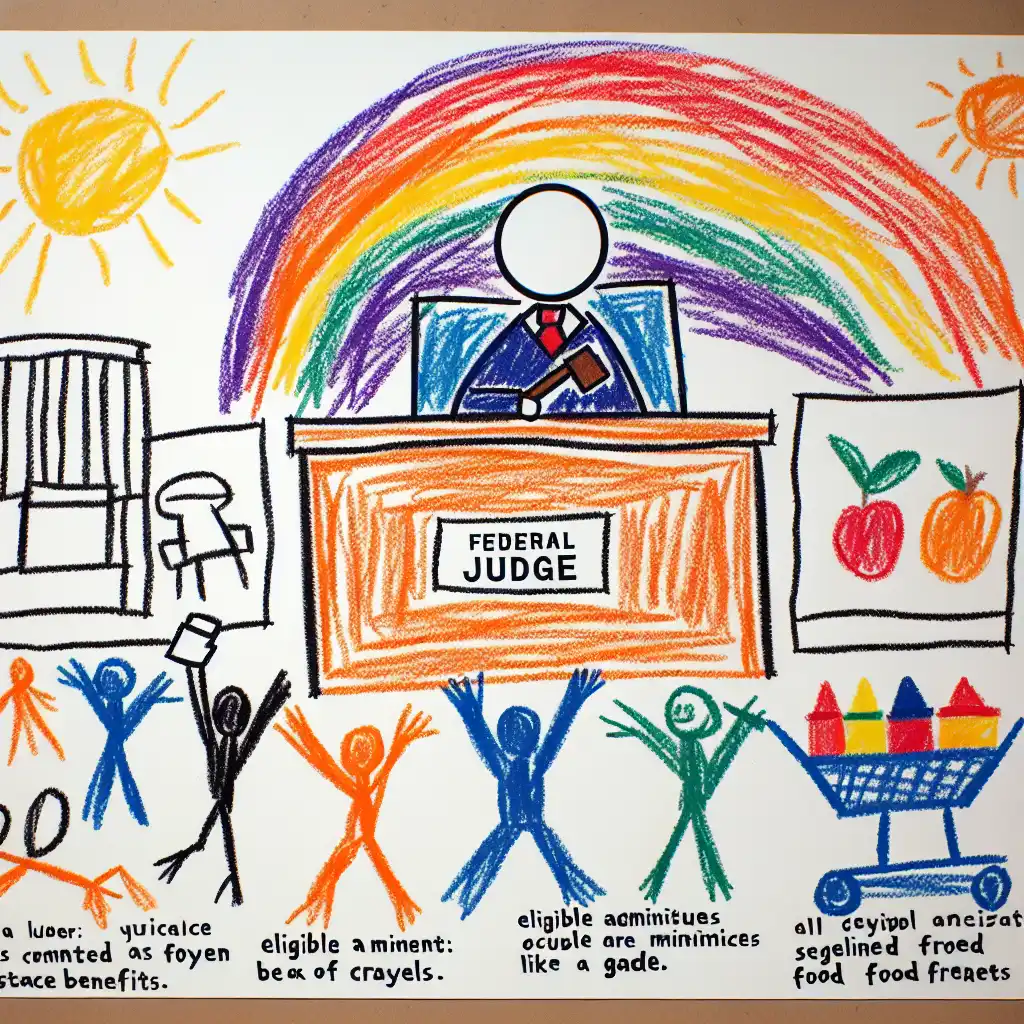Federal judge rules Trump administration must fund SNAP benefits

Explain Like I'm 5
Imagine you have a piggy bank where you keep coins to buy your favorite snacks. Now, imagine if one day, you were told you couldn’t buy any snacks because your piggy bank was empty, and you were really hungry. That’s a bit how some people felt when they heard they might not get money for food from a program called SNAP because the government didn't have extra money to spend due to a shutdown. But then, a kind teacher (like a judge in this case) said that there must be some extra coins found somewhere to make sure everyone can still buy their snacks. So, the people who needed the snacks felt relieved because they knew they wouldn't be hungry.
Explain Like I'm 10
SNAP stands for Supplemental Nutrition Assistance Program, and it's like a big helping hand for families who need a little extra money to buy food. Recently, the Trump administration said they couldn't give out SNAP money because the government was in a shutdown, which means they were trying to figure out how to spend their money, and some programs didn't have enough funds. This caused a lot of worry among the 42 million people who depend on SNAP to help pay for groceries.
But then, a federal judge stepped in and said, "Wait a minute, we need to find a way to keep funding SNAP!" So, the judge told the administration they had to use some emergency money to keep the program going. This decision was like telling a group of kids that the ice cream truck was still coming even though the road was blocked—it brought a lot of relief and happiness!
Explain Like I'm 15
The SNAP program is crucial for many Americans, providing essential food assistance to about 42 million people. During the government shutdown, the Trump administration announced that funding for SNAP had dried up, stirring significant concern and confusion among those who rely on it. A government shutdown happens when Congress can't agree on a budget to fund government operations, leading to a temporary closure of non-essential federal programs.
In this tense scenario, a federal judge ruled that the administration must tap into contingency funds—a sort of emergency backup money—to ensure SNAP benefits continued uninterrupted. This judicial intervention highlights the checks and balances in our government system, where the judicial branch can step in to correct or guide the actions of the executive branch in matters impacting public welfare.
This ruling not only prevented immediate hardship for millions by ensuring continued access to food but also set a precedent on how essential services must be maintained even during political standoffs like a shutdown. The broader implications here touch on the resilience of social safety nets and the judicial system's role in upholding fundamental needs in times of governmental crisis. Looking ahead, this could influence how future shutdowns are navigated, especially in terms of maintaining critical public services.
Want to read the original story?
View Original Source